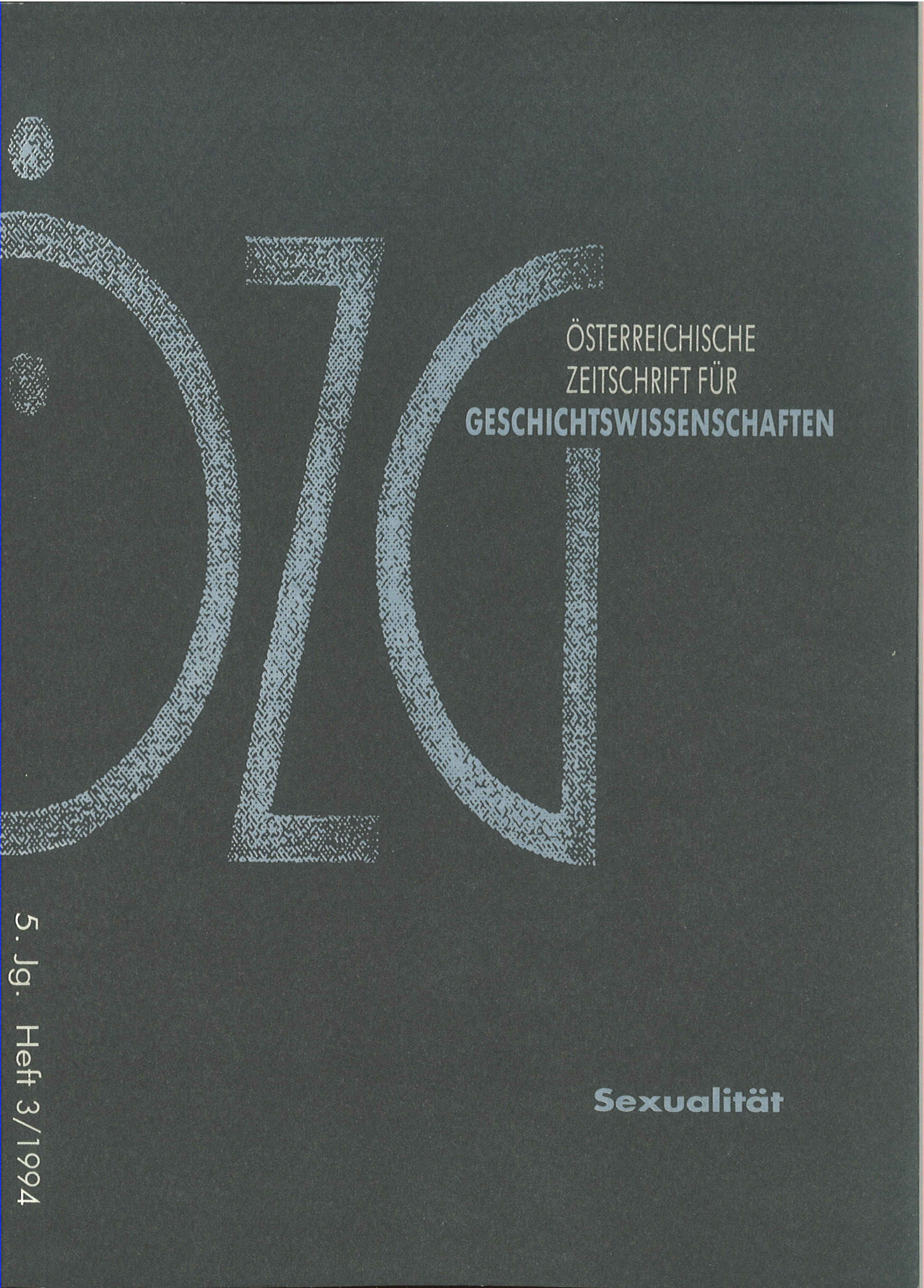Krankheit als Auszeichnung eines geheimen Lebens
Krankheitskonstruktion und Sexualität anhand der Lungentuberkulose um 1900
DOI:
https://doi.org/10.25365/oezg-1994-5-3-4Abstract
During the course of the 19th century a mysterious and at the same time very revealing silence concerning tuberculosis provoked an inquisitive search into the causes of this disease, which positioned the affiicted in a curiously suspicious and at the same time highly esteemed sphere. This specific image, along the lines of which the century's physicians constructed their perception of the disease, was closely connected with the patient's sexuality. Since medical research at the turn of the century was unable to locate the causes of tuberculosis, its reason had tobe located somewhere else and a theory of a certain ,disposition' for it was developed in which the act of intercourse played a vital part. Tuberculosis was regarded both as hereditary, and as the degenerative consequence of inborn deficiencies. Thus it allegedly pointed to secret vices in the affiicted person's way of life. At the same time, allegedly unhealthy practices in the way of life of the afflicted were unearthed and sexually coded. In the interest of prevention as well as of a successful therapy, the physician thus inevitably came to deal with this more and more clearly sexual core of the patient's individuality.


